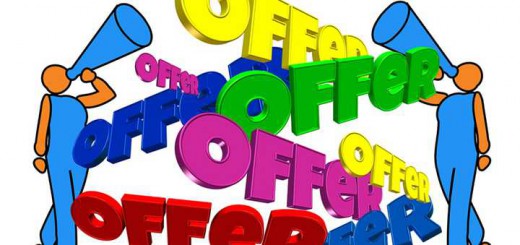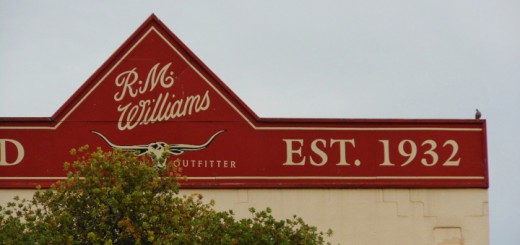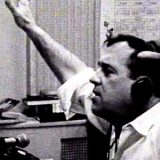How Audience Rapport Can Monetize You
 In part 1, part 2 and part 3 of this series I wrote about monetizing your podcast by (a) leveraging the rapport between talent and audience; and (b) adding your podcast to the inventory managed by programmatic advertising services.
In part 1, part 2 and part 3 of this series I wrote about monetizing your podcast by (a) leveraging the rapport between talent and audience; and (b) adding your podcast to the inventory managed by programmatic advertising services.
Marketing and advertising entrepreneur Robert Brill, made a case for the latter. “Large podcasters or podcasting networks may not need programmatic buying. They have their own sales force and relationships with ad agencies,” Brill said. But for mid-size and small podcasters it’s a different story. “These are people who don’t have connections with major ad buyers. These are the people who can benefit the most from programmatic buying.”
Brill made a case for advertisers as well. “When you buy ad space,” Brill said, “and you want to reach men 18-34, ESPN is a good place to go. But it’s a proxy. You’re making the assumption that most men like sports, making ESPN a good place to be.” Programmatic advertising turns the assumption you’re hitting your audience into a near-certainty.
The Trade Off
Ads delivered through programmatic advertising are easy to buy, easy to incorporate into a podcast and easy to direct to a select audience. Ads delivered live by a show host are comparatively time-consuming to buy, and both advertiser and podcaster to devote their energies to building a relationship. The ads also fall into the proxy category Brill described in the previous paragraph.
The Equalizer
There should be no contest here. It’s programmatic advertising by a knockout ten seconds into the first round. Except for one thing. The only relation between the ad and the host is that the ad is in the show. The host can’t even comment on the ad, as in “Now here’s a word from WidgetWorks, a great bunch of people,” because there’s no way of knowing what commercial will be inserted into what download. Programmatic advertising devalues the host-audience relationship.
This might not matter to large advertisers. If you’re Coca Cola, McDonald’s or Apple, it hardly matters whether a podcast host likes your product. She’s in the equation only to deliver ears. Podcast advertising is one small tactic in a large corporate advertiser’s larger strategic plan.
Small Can Be Big
What about small- to mid-size advertiser competing for attention with the big kids? How can they better use podcasts to get their customers’ attention? To put it in terms of dollars, what is the value of having a podcast host talk about a product or service directly to her audience?
Sure, their commercials can’t be inserted into thousands of podcasts, but could they afford that anyway? And, yes, their messages will fall on the ears of listeners outside their target audience. But, if the host is doing her job, those listeners will talk about the show because they feel personally connected to it. It’s those conversations that will land on receptive ears as suggestions or referrals from a friend.
That’s the rapport I wrote about in part 1 and the engagement that moves listeners to action in part 2. And it’s the source of leverage that can increase the selling power of a small- to mid-size advertiser’s commercials.
I’m not privy to any inside information, yet I think Apple came to the same conclusion when it decided Beats 1 would feature, along with live hosts and human-curated playlists, live commercials. Live personalities—not disembodied voices—are the ones who create an engagement with their audiences and deliver for sponsors.
My Fingers-Crossed Vision of the Future
I think programmatic advertising will be a dominant method of podcast advertising. Maybe not the dominant form, (traditional agency buys from by large podcast networks with professional sales forces might trump it in dollars spent), but certainly in the top two.
I hope the third method is a group of podcasting representatives (reps) independent businesses that aggregate podcasts (not inventory) with a similar tone and feel, and sell those packages to sponsors whose brands match the sensibilities of the shows. The reps would handle the billing and facilitate the direct communication between sponsors and podcasters that fosters that magic partnership relationship.
We Work Hard for Our Money But Who Cares?
Programmatic advertising is passive and seductive because the revenue is based on the ears you deliver. The rapport you have with your listeners, your most valuable asset as a podcast host, isn’t easily measured, so it isn’t a factor in ad buying. A rep company, staffed by human beings who can bring your talent to the attention of other human beings means represent the opportunity ot monetize both your listenership and your ability. A good rep will get you paid for your talent (or you’ll find another rep).
Brill calls podcasting, “…the ultimate influencer business. It’s you and the audience. And the audience is intimate. And the things that you say are valuable. It’s authentic. And any message you bring to the table is held in a much higher regard than something heard on CNN or NPR, because it’s ultimately a close, human-to-human relationship. Even if it’s you and 25,000 listeners, it’s still a small, intimate relationship.”
That relationship has value. To Brill, it’s the value of the environment that surrounds ads placed in a show. To me it’s the value that ought to be part of the equation that determines what we get paid to deliver a sponsor’s message. It’s time to think about monetization in terms of hosts and their rapport, not only downloads and ear drums.
What do you think?
Would signing with a rep firm make sense to you? Can existing podcast networks do the job? If you have a business, would you want the ability to access to this kind of audience leverage? What would it be worth to you?
Please leave a comment. This is a conversation we cannot afford not to have.
 Robert Brill is a marketing and advertising entrepreneur. His latest venture, AudienceBoom, builds hand-curated audiences for local businesses across Twitter and Instagram. You can find him at brillmediaconsulting.com, brillmedia.co and audienceboom.com.
Robert Brill is a marketing and advertising entrepreneur. His latest venture, AudienceBoom, builds hand-curated audiences for local businesses across Twitter and Instagram. You can find him at brillmediaconsulting.com, brillmedia.co and audienceboom.com.








